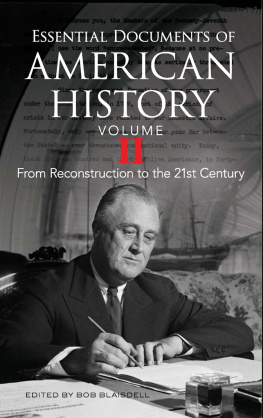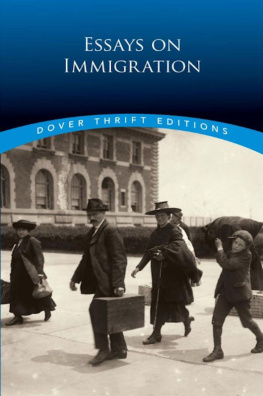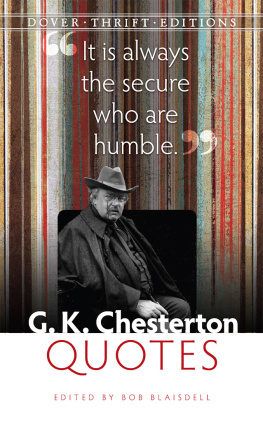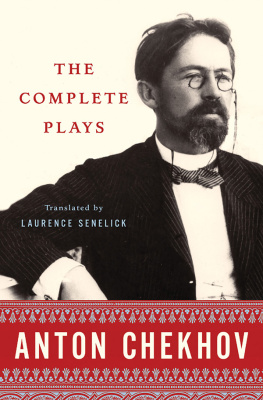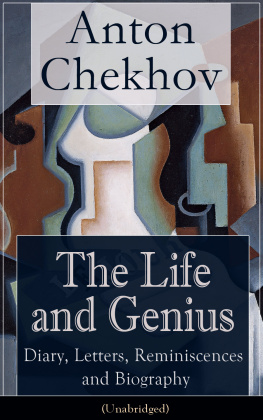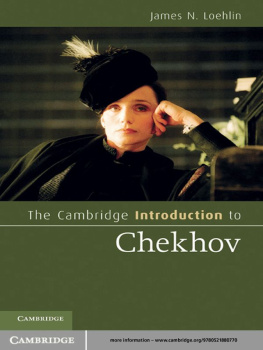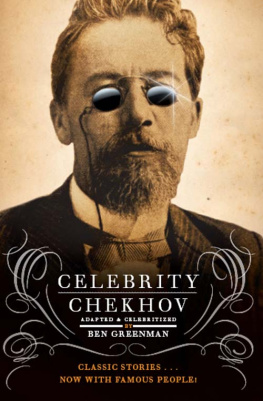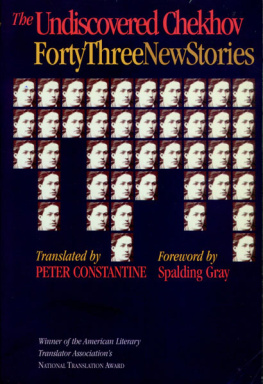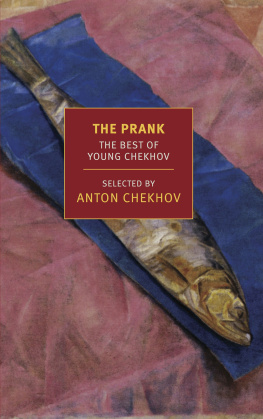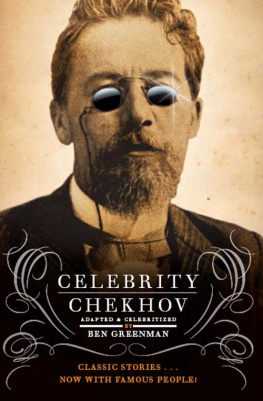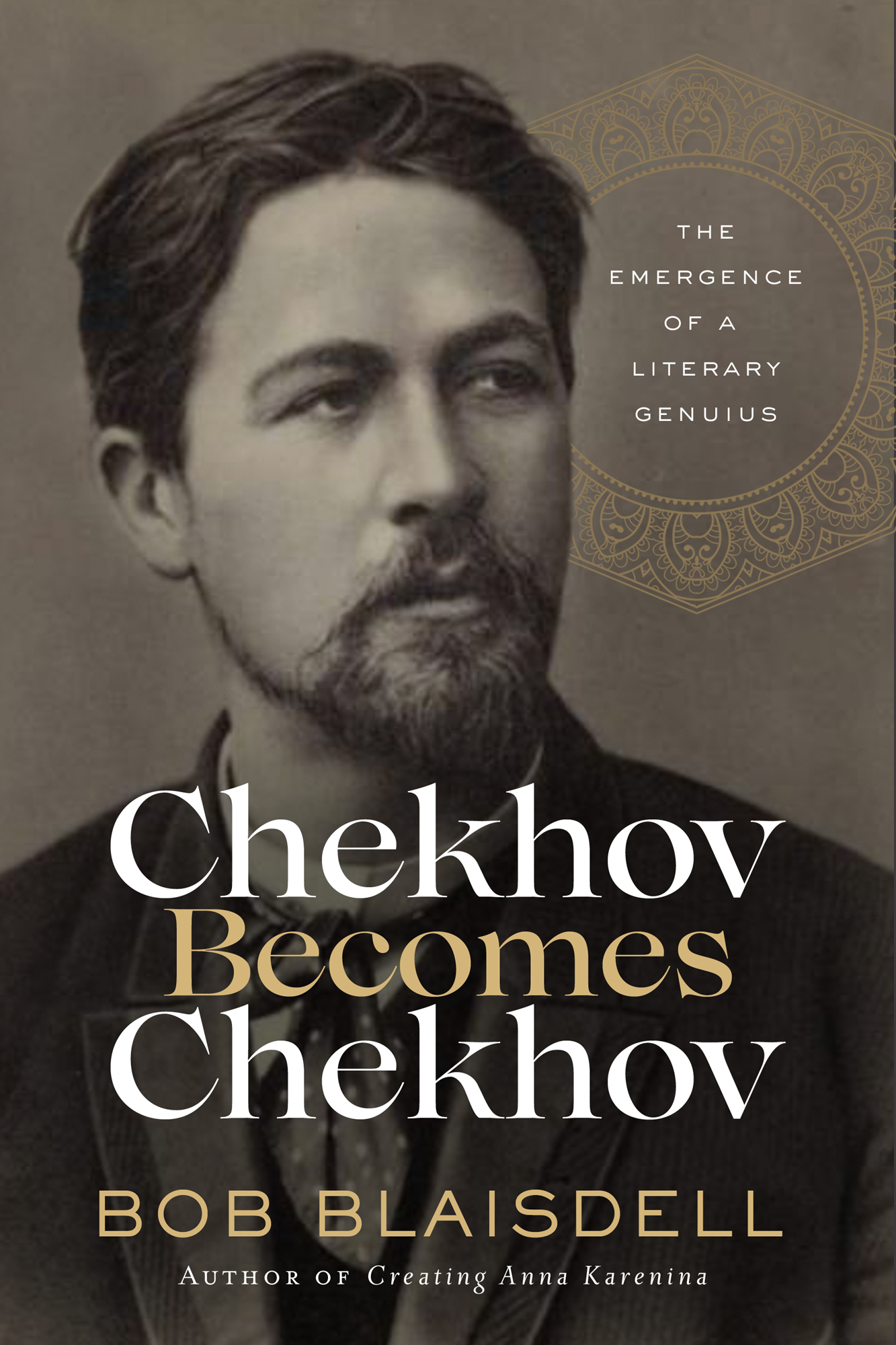Contents
Guide
The Emergence of a Literary Genius
Chekhov Becomes Chekhov
Bob Blaisdell
Author of Creating Anna Karenina
To Paul Richardson
Introduction

You should never describe yourself. It would have been better had you made Pospelov fall in love with some woman, and incorporated your feelings in her.
To a fellow writer
If someone offers you coffee, dont go looking for beer in it. If I present you with the ideas of the Professor, trust me and dont look for Chekhovs ideas in them, thank you kindly.
To his friend and editor Aleksei Suvorin
A nton Chekhovs biography in 18861887 is captured almost completely in the writing that he was doing. Reading the stories, we are as close as we can be to being in his company.
In 1886, the twenty-six-year-old Moscow doctor published 112 short stories, humor pieces, and articles. In 1887, he published sixty-four short stories. In these two years, three volumes of his short stories were published. Meanwhile, three hours a day, six days a week, Dr. Chekhov treated patients in his office at his familys residence, and also made house calls; he lived with and supported his parents and younger siblings. In the winter of 1886, he became engaged and unengaged to be married. He mentored other writers with matter-of-fact encouragement and brilliant criticism. He carried on lively, frank, funny correspondence with editors, friends, and his older brothers. Having written, he was exhausted, but in the midst of writing, whether venting and making jokes in letters or amusing himself and us with stories, his senses seemed fully alive, consciousness and imagination flowing together. Weary and suffering from various ailments including the tuberculosis he had contracted at twenty-four, he took a long trip south in the spring of 1887 to Taganrog, where he had grown up. He continued writing even on vacation. In his short stories he identified with a variety of characters: doctors, patients, actors, drivers, writers, artists, children, women, men, drunks, religious folk, Muscovites, Petersburgers, exiles, villagers, judges, criminal investigators, cheats, lovers, midwives, business owners, and animals. After a blue and dreary summer of 1887, he wrote a four-act play in the space of two weeks. He concluded these two years of artistic work by composing one of Russias most famous childrens stories, Kashtanka.
Chekhovs imagination is what brought him to the worlds attention and has kept him there. His imaginationand its prodigious flowering during these yearsis the focus of this biography; the facts of his life build the frame around the picture of that imagination. In 1888 until to the end of his life, the amount of his writing only slowed to a pace that any other great author would have been proud of, and he eventually curtailed his medical duties. He died in 1904, the most famous writer in Russia other than Tolstoy; posthumously his short stories and plays became in translation the English-speaking worlds model of everyday comedy and tragedy.
The stories and humor pieces that he was producing on deadline for St. Petersburg newspapers and magazines required that he keep an eye on topicality (e.g., New Years, Lent, Easter, spring thaws, summer dachas, return to school, winter snows, Christmas). What I did not expect to discover in researching his life in these years is that when those 178 pieces are read in chronological order and in conjunction with the personal letters to and from him, they become a diary of the psychological and emotional states of this conspicuously reserved man. For example, when he was in the midst of his frustrating and anxious engagement, young couples in his stories are continually making their rancorous way into or out of their relationships. When Dr. Chekhov was overtaxed by his medical duties, the doctor characters explode or implode. Chekhovs talented but drunken older brothers and domineering father became transmuted into characters, but almost always Chekhov converted the circumstances of the people he knew into fictional ones at various removes: the opposite gender, a younger or older age, a different profession, a different place, a different family. His clever brothers would have recognized themselves, though not the circumstances, in many comic and serious stories. His father, born a serf to a slave-driving serf-father, was reputedly incapable of recognizing the similarities between himself and the brutal or ridiculous fathers in his sons stories.
Anyone who writes about Chekhov has an easy time of it when quoting his work. Just like that, in a sentence or two, the situation and the people involved are clear to the minds eye and the bodys senses: In the low-pitched, crooked little hut of Artyom, the forester, two men were sitting under the big dark ikonArtyom himself, a short and lean peasant with a wrinkled, aged-looking face and a little beard that grew out of his neck, and a well-grown young man in a new crimson shirt and big wading boots, who had been out hunting and come in for the night. They were sitting on a bench at a little three-legged table on which a tallow candle stuck into a bottle was lazily burning (A Troublesome Visitor). Chekhov continually makes us aware of our senses taking in impressions. He gives us and the characters the experience of melding those impressions into coherence. Chekhov as an artist cannot even be compared with previous Russian writerswith Turgenev, Dostoevsky, or myself, remarked Tolstoy. Chekhov has his own peculiar manner, like the Impressionists. You look and it is as though the man were indiscriminately dabbing on whatever paints came to his hand, and these brush strokes seem to be quite unrelated to each other. But you move some distance away, you look, and you get on the whole an integrated impression. You have, before you, a bright, irresistible picture of nature. He continually gives us the sensory atmosphere, our awareness of being or imagining ourselves being in an absolutely particular place. While Chekhov is not quotable for witty or profound statements, he is quite quotable for efficiency and depth: in an opening sentence or two, he creates each storys shape and momentum.
To indicate instances of Chekhovs imagination at work and at play, I quote at length from his stories and letters and provide continual biographical commentary. Its possible, perhaps likely, that readers may become annoyed by how often I interrupt his stories with my remarks. Chekhov later wrote to Maxim Gorky, who would soon become the third most famous Russian author, that in his stories, You are like a spectator at a play who expresses his enthusiasm so unrestrainedly that he cannot hear what the actors are saying and does not let others hear it. This lack of restraint is particularly felt in the descriptive passages with which you interrupt your dialogue This biography is not about my special experience along narrow scholarly paths, I hope, but about a route anybody can take with Chekhov.
In the following few pages of the introduction, I provide some background to Chekhovs life before I proceed to trace the day-to-day and week-to-week routines and varieties of experience of this period. Because the stories encapsulate the life of his mind, mood, and imagination, they reveal him more clearly and deeply than can any biography, chronicle, nevertheless always identified himself, in some detail, with his sensitive, nave, cynical, eruptive, or fragile characters.


